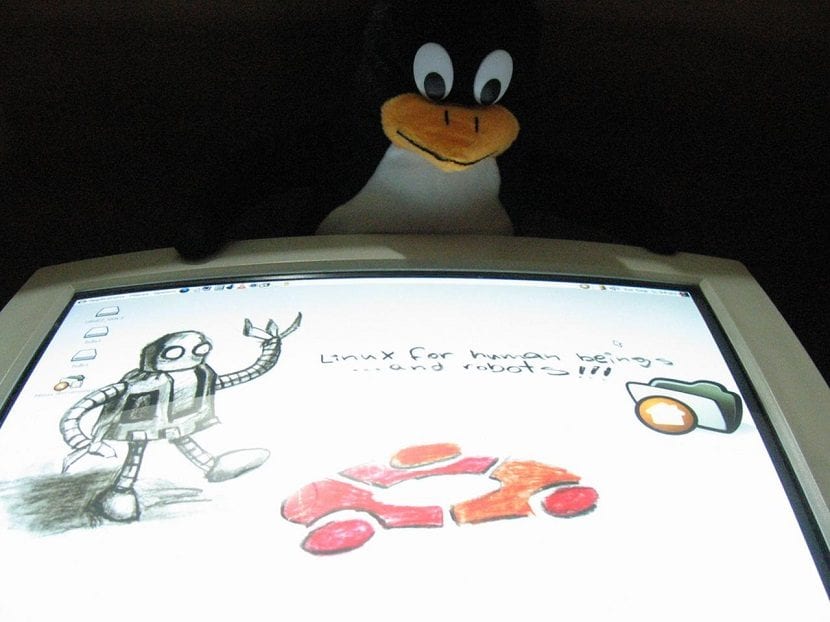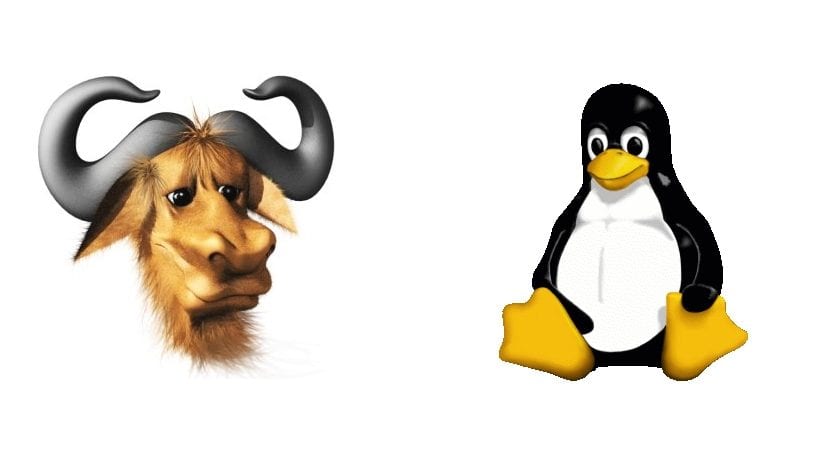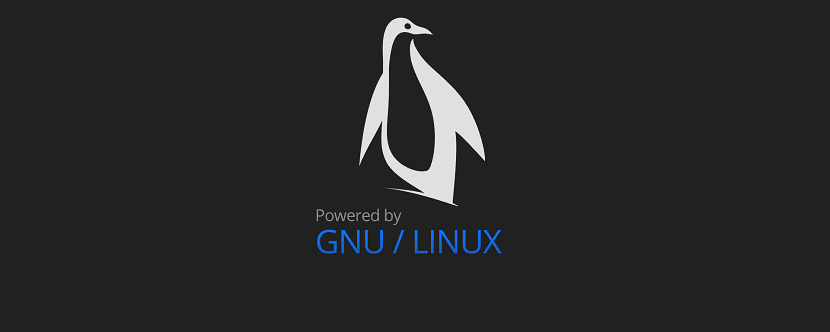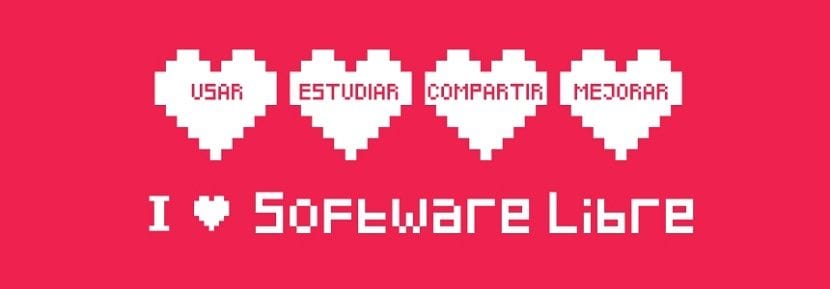
Learn Free Software and GNU / Linux: Without Installing anything.
Many decades ago when the Free Software Movement emerged and later constituted the union of what is now known as GNU / Linux, that is, Linux-based Operating Systems and programs grouped under the GNU philosophy.
And today the creation, use and dissemination of Free Software and GNU / Linux is then maintained by a «Techno-social» Movement, a community willing to satisfy the need to carry out free and free projects before the overwhelming and majority development of Private Software, to recreate that golden age of software where the development of the first computers and computer programs was deeply collaborative and academic.

Introduction
Decade of the 50s / 60s
It was around the 50s / 60s that members of scientific computing at that time made up of the same computer scientists, academics and groups of researchers who worked cooperatively with each other, they made most of the software created as a community.
And they were distributed (Operating Systems, Programs and Source Codes) with the help of the groups of their users, all with the purpose that they could be modified to achieve the necessary arrangements and / or improvements.
Decade of the 70/90
In the '70s this trend began to reverse, to move from the large and expensive computers of the university centers and government entities with members with collaborative work with powerful and stable Unix-like Operating Systems (multi-user and multi-task) to smaller work groups in private investigation centers, mainly with proprietary Operating Systems.
Private Operating Systems that increasingly had more brand restrictions, copyright, leasing, licensing, among many other things, which limited the free and massive use of them.
News
But nowadays in this fight against proprietary and closed Software, every day many more people in the personal (home) and professional (work) spheres are starting or resuming with force the use of Free Software and GNU / Linux.
But in summary, the History of Free Software and specifically GNU / Linux goes through the well-known events of Richard Stallman in 1984 when he created the GNU project and Linus Torvalds in 1991 when he wrote a Unix-like kernel for computers of that time.
Giving as a result of the merger of both projects a complete Operating System called GNU / Linux, that it was Unix-like and that it could also be run on home computers (PCs) of that time. And reaching the present day where it is adapted to multiple home, business and research architectures.
And now with the current performance of PCs, their overcrowding has reached homes due to the affordable cost of Hardware, and the growing need to minimize expenses for use, maintenance and updating of Private Software, which has given them a wonderful opportunity for Free Software and GNU / Linux to occupy an honorable position within this new stage of the information society.
Relevance
But, beyond any consideration of costs or functionalities with respect to the Private Software, Free Software is more in tune with the interests of the citizenry than of the corporations, it is more pro-modern without diminishing the freedom of creation, use, diffusion, learning and adaptation of knowledge.
And it is at this point where Free Software fits perfectly with its four (4) freedoms or principles to this vital citizen need. Let's remember that the four (4) freedoms of Free Software are:
- Use: Freedom to use software to be able to use it freely regardless of its purpose.
- Study: Freedom to study how the software is designed to see how it works.
- Share Freedom to distribute the software to ensure that we can help others to have it.
- To get better: The freedom to modify its elements, to improve them and adapt them to different needs.
Therefore, learning to use and definitively use as much Free Software as possible constitutes an opportunity and a prevailing need. so that an immense portion of Human Society not favored by the current System can humbly remain in technological modernity without disregarding the loss of their rights to Privacy, Security and individual and collective Freedom.

Contents
Surely many of the initiates and newbies in the area of SL and GNU / Linux, perhaps many out of fashion or curiosity, still being Traditional users of Private Operating Systems (Windows / MacOS) start their way here due to the abundant reading available on SL and GNU / Linux in the thousands or millions of websites (Blog, Magazines, Forums) specialized on the subject, or because a friend or colleague told you that they use it at home or work.
And from this small step, perhaps many download and install a GNU / Linux Distro as a single or dual Operating System on their machines to get fully into the subject, which is neither good nor bad. But in my experience the best to achieve an excellent transition and definitive migration to SL and GNU / Linux goes through 2 stages prior to final adoption.
The first is to use a lot of Free Software (GNU Programs) on our proprietary Operating Systems and then move on to the second that deals with getting used to and assimilating the technology of the area without installing anything in a definitive or radical way, that is, using it without installing it. And for that there are some useful websites and technologies that can serve us for this purpose, among which are:
Theoretical sites
These websites are focused on exploring each current or old GNU / Linux Distro in great detail, at a very technical level accompanied by great and useful technical analyzes on them. Which facilitates timely learning about which Distro to use or start using without so many complications or uncertainties.
Practical sites
These websites are focused on allowing us to interact online and in a real way with countless GNU / Linux Distros and their applications in a similar way as if we had it installed on our computers to increase our level of real user experience with said products developed.
Useful technologies
There are many virtualization technologies available in the GNU / Linux World and other Private Operating Systems such as MS Windows or Mac OS, but none are as easy to install and use as VirtualBox. This and other similar technologies allow users to perform (recreate) the installation and use of the various GNU / Linux Distros in a 100% real way without the need to radically alter the operation of their current Operating System.

Conclusion
The current technological modernity tends to be exclusive due to the high costs, limitations and disadvantages of the use of Private Software, added to the misuse of them by the Governments or Economic Sectors that try to model, monitor or control the masses of citizens through them.
But Free Software and GNU / Linux give us the opportunity to keep alive the possibility, the alternative that an important portion of current software continues to be developed outside the business and commercial jurisdiction., that is, it is developed individually and collectively by citizens free from malicious interests.
In order to balance the satisfaction and reliability that the Software used does not violate our rights to Privacy, Security and individual and collective Freedom, that it can be adapted by as many people as possible and for any purpose, and that the maxim of Free Software and GNU / Linux be kept safe in time, that is, that the Software that can be used, studied, shared and improved among all.
We hope that the links provided in this publication help to spread the knowledge and use of Free Software and GNU / Linux without major complications that make those new users reject it.
"It has been many decades since the Free Software Movement arose and later constituted the union of what is now known as GNU / Linux, that is, Linux-based Operating Systems and programs grouped under the GNU philosophy."
Y…?
What happened then?
Why do you introduce such a long subordinate if in the end you don't tell what happened "enough decades ago"?
What happened was summarized in the second paragraph and in detail in points 1.1, 1.2 and 1.3, but the understanding is free and personal, therefore, there is no problem if you interpreted it individually.
Thanks anyway for reading and commenting on the article.